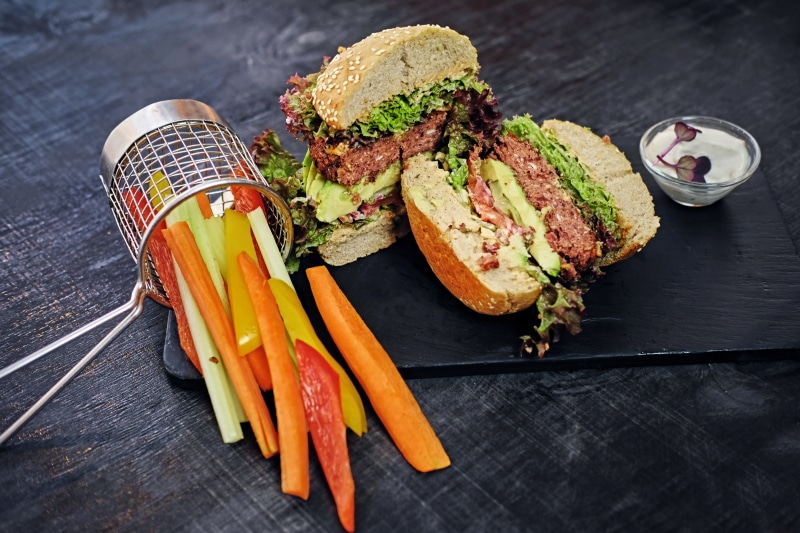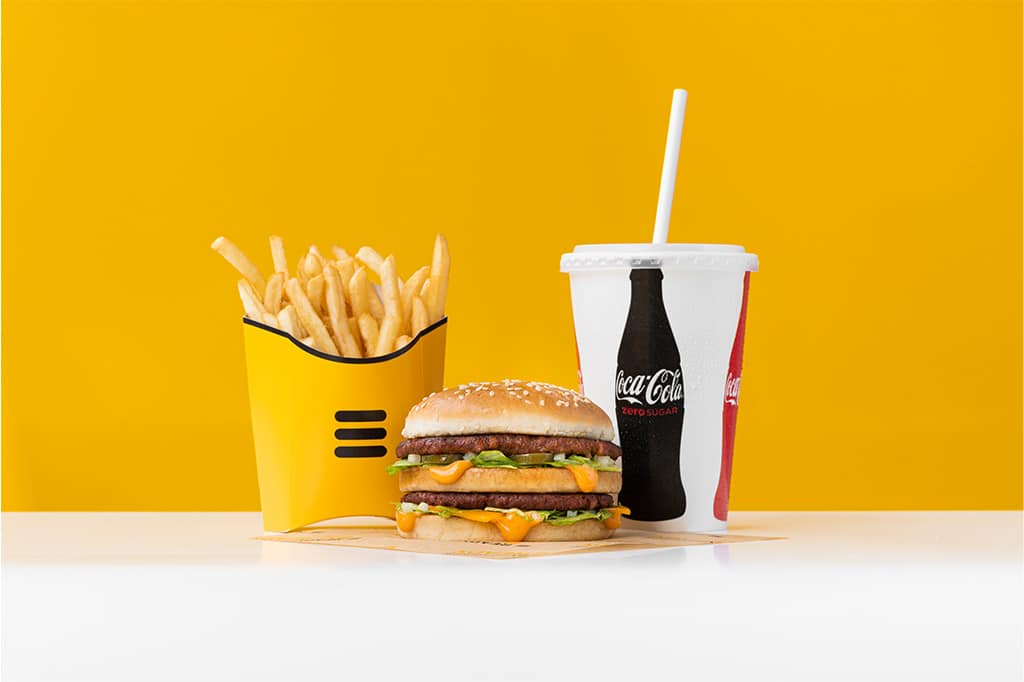Despite decades of benefiting from animal mistreatment, many food firms are jumping on the vegan bandwagon. Here’s how smaller vegan firms with a mission are fighting back…
Plant-based meat has existed for decades, with small but formidable vegan enterprises working around the clock to enhance technology, win consumer trust, promote transparency, and overcome plant-based eating stereotypes.
Vegan and vegetarian meat has not only become more “realistic” and affordable, but it has also carved out a distinct and well-defined position at the table and achieved category-wide success.
In 2020, retail sales of plant-based meat in the United States surged by 45 percent, topping $1 billion for the first time and reaching a staggering $1.4 billion. This expansion was twice as rapid as conventional animal meat within the same period.
Concurrently, global vegan meat retail sales reached $4 billion, increasing from $3.4 billion to $4.3 billion in a single year, or by 26.5 percent.

Monetizing the vegan movement
Nestlé, McDonald’s, and KFC, among others, have cooked up plant-based versions of their renowned meat-based classics to keep up with the competition, maintain their relevance, and avoid losing earnings.
KFC UK tested its first-ever vegan burger in June 2019. The dish was completely sold out in four days, with sales 500 percent higher than its standard chicken burger. During the pilot, one KFC location sold a vegan burger every minute.
McDonald’s and Burger King attracted a comparable amount of attention when they debuted their own meatless choices. McDonald’s UK debuted its first vegan burger at select locations in October 2021. And by January 2022, following an “amazing” reaction, it had been implemented at all 1,300 restaurants in the United Kingdom and Ireland.
Last month, Burger King UK veganized its whole flagship location in Leicester Square in response to the strong response to its Plant-Based Whopper and Vegan Royale.
The issue with traditional fast food
While most plant-based eaters have welcomed the transition, others are more hesitant. For decades, major fast-food corporations have profited from animal exploitation, thereby contributing to public health concerns and environmental degradation.
The impact of these corporations on animals is impossible to comprehend. McDonald’s sold one million beef hamburgers annually in 1952. Now, it is reportedly nearing its 400 billionth burger sale. McDonald’s claims that a single batch of its beef can contain flesh from more than 100 cows, even though it is nearly difficult to quantify the number of animals killed to produce such a quantity of food.
In addition to their ramifications for animal welfare, these meals are extremely detrimental to the environment. It is estimated that McDonald’s alone emits more than 53 million metric tons of carbon dioxide per year, which is more than the entire country of Norway, and this amount continues to rise.
These numbers are motivating more people to choose a vegan diet. Environmental concerns were one of the top three reasons tens of thousands of individuals signed up for Veganuary this year.

As proven by an ever-growing amount of data, plant-based foods have a significantly smaller impact on the planet and its resources. And the same holds true for vegetarian fast food.
According to the renowned vegan fast-food company Ready Burger, their signature “Big Ready” has a carbon footprint nine times smaller than conventional meat.
Additionally, the brand emphasizes that vegan burgers emit 92% fewer greenhouse gasses and require 70% less water and 93% less land to produce.
But now that veganism is “in” (and money can be earned), the same corporations that have damaged the environment and exploited animals for decades have begun to dabble in the plant-based market as well.
Innovative method
To reclaim the limelight, smaller enterprises with a goal are creating and promoting their products in a novel, unorthodox methods. JUST Egg, for instance, ran a witty full-page ad in The New York Times and erected a massive billboard in Manhattan to promote the health benefits of plant-based food last month. Also in February, the vegan organization Viva! debuted a contentious advertisement on Channel 4 highlighting the cognitive dissonance associated with meat consumption.
Similarly, vegan dairy maker Naturli recently poked fun at the food industry’s persistent problem with plant-based enterprises using names such as meat, sausage, and milk to represent non-animal goods. What is Naturli’s solution? Relabeling their non-dairy milk like so: “DO NOT! CALL ME M LK.”
Ready Burger elevates the situation. The company’s tongue-in-cheek branding extends to every aspect of its business, from the design of its London locations to the flavorful food it serves. And the message is quite clear: animal-free dining does not need forsaking our favorite dishes.
Additionally, they are inexpensive, healthier, and better for the environment. Given that McDonald’s and similar firms now profit from a movement they did not initiate, Ready Burger’s marketing is appropriate. As a thinly veiled jab at the fast-food giant, Ready Burger mimics elements of McDonald’s branding.
The prospects for fast food
And it appears that these tactics are bearing fruit. Since opening its doors in London last year, Ready Burger has sold more than 260,000 vegan choices. In addition, two additional UK locations are scheduled to open soon, and global development is also on the horizon.
Likewise, investors recognize the potential. Ready Burger concluded its first funding round on Crowdcube in July 2021, raising £2 million from 842 investors in exchange for 22.47 percent equity.
It is an industry-wide trend, with increasing numbers of investors betting on the vegan meat sector, which is expected to grow exponentially. A forecast from December 2021 projects that the worldwide vegan meat market would increase by 93% by 2025, reaching $8.3 billion at a CAGR of 15%. (for context, the CAGR of the global meat market is around 10 percent lower).
Max Miller, CEO, and co-founder of Ready Burger is sure that this momentum will persist. He explained that his team is intensifying efforts to “make a vegan diet more accessible to everyone.”
He stated, “We will never sacrifice taste, convenience, or pricing.” Instead, we have worked diligently to create a selection of flavorful classics that are indistinguishable from their meat-based counterparts.”
“In 2022, we will introduce more world-first menu items at the same prices our customers are accustomed to, and we have advanced expansion plans with more outlets.”








